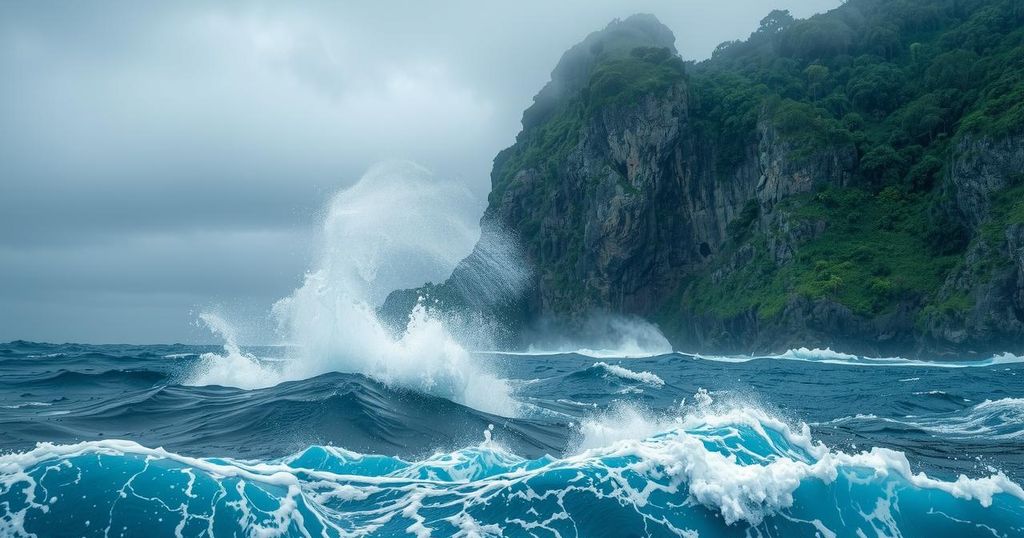Cyclone Chido, the strongest storm to hit Mayotte in over 90 years, may have resulted in nearly 1,000 fatalities. The cyclone has devastated homes and infrastructure, leading to a humanitarian crisis that highlights socioeconomic issues in the region. Immediate assistance is being provided by French authorities and international organizations, as the islands face a challenging recovery ahead amid worsening climate-related risks.
Cyclone Chido struck Mayotte, a French island located approximately 500 miles off the east coast of Africa, on December 14, 2024, marking it as the most powerful storm to impact the region in over ninety years. According to local officials, this catastrophic event may have resulted in the loss of nearly one thousand lives. Affected areas include Mayotte as well as the neighboring islands of Comoros and Madagascar, which are all grappling with the aftermath of the cyclone’s destruction.
The island of Mayotte, home to a population exceeding 300,000, has long faced significant socioeconomic challenges, including persistent drought, lack of investment, and escalating gang violence. Following Cyclone Chido, many essential infrastructures, such as homes, schools, and health facilities, have sustained severe damage, prompting urgent calls for assistance from international organizations. The United Nations Children’s Fund (UNICEF) stated, “Many homes, schools and health facilities have been partially or completely destroyed, and we are working closely with [the] government to ensure continuity of essential basic services.”
In response to the disaster, France has deployed approximately 1,600 police and gendarmerie officers alongside rescuers and firefighters from both Mayotte and the nearby island of Reunion. Additionally, emergency supplies are being transported via military aircraft and ships to aid in recovery efforts. Mayotte Prefect Francois-Xavier Bieuville expressed the dire situation, stating, “I think there are some several hundred dead, maybe we’ll get close to a thousand, even thousands… given the violence of this event.”
Cyclones are powerful tropical storms categorized by their sustained wind speeds and regional terminology. These storms play a crucial role in the Earth’s climate system by redistributing heat and energy. Their formation is significantly influenced by warm ocean temperatures, which lead to the development of inclement weather patterns. Despite being a natural event, the increasing severity of cyclones can be attributed to the effects of climate change, as noted by the Intergovernmental Panel on Climate Change (IPCC), suggesting a heightened risk of intense weather phenomena in the future.
Cyclones are categorized based on their geographical location, with different terminologies applied to similar storm systems: “cyclone” for those in the South Pacific and Indian Ocean; “hurricane” for those in the North Atlantic and eastern Pacific; and “typhoon” for storms in the Northwest Pacific. January through March typically constitutes cyclone season in the southeastern Indian Ocean. Countries in southern Africa, such as Mozambique and Zimbabwe, have previously experienced devastating cyclones, with Cyclone Idai in 2019 resulting in over 1,300 fatalities. Climate change is expected to exacerbate both the wind speeds and rainfall associated with these storms without necessarily increasing their frequency.
In conclusion, Cyclone Chido represents a tragic event for Mayotte and neighboring regions, highlighting the ongoing vulnerability of these islands to powerful storms amidst existing socioeconomic challenges. The urgent response from French authorities and international organizations is critical to address the immediate humanitarian crisis and rebuild the affected communities. Moreover, this incident underscores the need for global awareness and proactive measures to mitigate the impacts of climate change on disaster-prone regions such as southern Africa.
Original Source: news.sky.com






